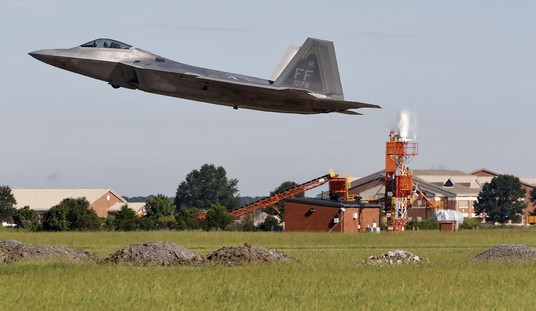Following violent Muslim reactions to the amateurish Innocence of Muslims video, which depicted some of the less salutary aspects of Muhammad’s biography, international and domestic Islamic agendas are openly converging with vehement calls for universal application of Islamic blasphemy law. This demand to abrogate Western freedom of expression was reiterated in a parade of speeches by Muslim leaders at the UN General Assembly. The U.S. Muslim community echoed such admonitions, for example during a large demonstration in Dearborn, Michigan, and in a press release by the Islamic Circle of North America.
Previously, the 57-member Organization of the Islamic Conference (subsequently renamed the Organization of Islamic Cooperation [OIC]) — the largest voting bloc in the UN, which represents all the major Muslim countries and the Palestinian Authority — had sponsored and actually navigated to passage a compromise UN resolution insisting countries criminalize what it calls “defamation of religion.” Now the OIC — via Secretary General Ekmeleddin Ihsanoglu — is calling for a specific ban on speech allegedly impugning the character of Islam’s prophet, which he termed “hate speech.” Ihsanoglu accompanied his demand with a thinly veiled threat of violence should such “provocations” recur:
You have to see that there is a provocation. You should understand the psychology of people who revere their prophet and don’t want people to insult him. … If the Western world fails to understand the sensitivity of the Muslim world, then we are in trouble…[such provocations pose] a threat to international peace and security and the sanctity of life.
Earlier, in a long PJ Media review of the Huma Abedin family-dominated Institute of Muslim Minority Affairs (IMMA) and its ideological drivers, I highlighted the IMMA’s May 15, 2012, journal contents (vol. 32, issue 1), which championed the relevant Weltanschauung of Abul Hasan Ali Nadwi (d. 1999).
Nadwi was a founding member of the Muslim World League, a member of the Organization of Islamic Conference (now Cooperation), a member of the World Supreme Council of Mosques, and a member of the Fiqh Council of Rabita. Nadwi participated in a host of other activities via Islamic organizations and institutions, including, notably, the World Assembly of Muslim Youth (WAMY). In India, Nadwi was a rector of Nadwatul Ulama and president of the Academy of Islamic Research and Publications.
Recently, I came across Nadwi’s remarkable juxtaposition of his apologetic views on Muhammad, and the Sharia, which epitomize the mindset behind the current efforts to impose Sharia-based universal blasphemy laws, now clearly manifest.
Nadwi wrote these words just over 50 years ago (in 1961; the English translation was published in 1976; Speaking Plainly to the West, Lucknow, 1976, pp. 105-106):
…[T]he record of the sayings and doings of the sacred Prophet, his life-account, is a fragrant legacy which is extremely beautiful as well as incandescent. It makes the most shining page of the story of human advancement which can be recreated by reminding mankind of its true station. The reading of it restores the confidence of man in himself and revives in him the awareness of nobility. The picture it presents is so exquisitely charming that anyone whose aesthetic sense has not deserted him and in whom the feeling of perfection is present cannot fail to be aroused and inspired by it. He will be seized with ambition to attain the heights by emulating the Prophet’s example that may endue his life with sublimity, peace, and magnanimity. It unties knots of intellect and unravels the hidden mysteries. This wonderful portrait of lofty virtues and splendid accomplishments is present to this day in its pristine glory and the alteration of circumstances and the passage of time have done nothing to rob it of its purity or radiance.
The preserved treasure of the Islamic Sharia is present, without any distortion or amendment, as it was left behind by the bringer of the Sharia, the Prophet himself. The Sharia is the most complete and the most perfect jurisprudential system in the world. It denotes an admirable blending of the ancient with the modern and can serve the needs of all ages and climes. It is also well established for the future. It possesses such wise and sound foundations that the edifice of a healthy society or civilization can always be built on them.
I maintain that unless we are willing to offer a reasoned but firm rebuttal to the entire genre (represented by Nadwi’s writings) of bowdlerized, triumphant views of Islam’s prophet, and the Sharia itself, then we are abetting, or passively accepting, the Sharia supremacist agenda. Fortunately, pellucid, objective Western and freethinking Muslim scholarly analyses debunking these views are at our disposal.
Notwithstanding Nadwi’s hagiography, the renowned Islamologist Arthur Jeffery, in his review of A. Guillaume’s seminal 1955 English translation of the defining pious Muslim biography of Islam’s prophet by Ibn Ishaq, remarked:
Years ago the late Canon Gairdner in Cairo said that the best answer to the numerous apologetic Lives of Muhammad published in the interests of Muslim propaganda in the West would be an unvarnished translation of the earliest Arabic biography of the prophet. In this present volume such a translation is put into our hands in a beautifully printed and produced book. … Byzantine, Syriac, and Armenian writers who mention him say only that he was a merchant who appeared as a prophet and sent the Arabs out on their wars of conquest.
Nearly a century ago (in 1915), W.H.T. Gairdner, the great Arabic linguist and scholar of Islam, had indeed noted dispassionately what is readily apparent from Muhammad’s actual biography (as opposed to the treacly Muslim hagiography), based exclusively on the reverent Muslim sources:
As incidents in the life of an Arab conqueror, the tales of raiding, private assassinations and public executions, perpetual enlargements of the harem, and so forth, might be historically explicable and therefore pardonable but it is another matter that they should be taken as a setting forth of the moral ideal for all time.
Four years later, in 1919, Gairdner wrote an essay titled “Muhammad Without Camouflage,” responding to a mendacious birthday tribute panegyric of Islam’s prophet written collaboratively by Muslims and non-Muslims. A particularly trenchant segment of Gairdner’s rebuttal discussed the slaughter of the vanquished Medinan Jewish tribe, Banu Qurayza, whose massacre became an important motif in jihad war jurisprudence. Relying exclusively upon Muslim sources, Gairdner highlighted without equivocation the pivotal role that Muhammad himself played in orchestrating the overall events:
The umpire who gave the fatal decision (Saad) was extravagantly praised by Muhammad. Yet his action was wholly and admittedly due to his lust for personal vengeance on a tribe which had occasioned him a painful wound. In the agony of its treatment he cried out: “O God, let not my soul go forth ere thou has cooled my eye from the Bani Quraiza” [Banu Qurayza]. This was the arbiter to whose word the fate of that tribe was given over. His sentiments were well-known to Muhammad, who appointed him. It is perfectly clear from that that their slaughter had been decreed. What makes it clearer still is the assertion of another biographer that Muhammad had refused to treat with the Bani Quraiza at all until they had “come down to receive the judgment of the Apostle of God.” Accordingly “they came down”; in other words put themselves in his power. And only then was the arbitration of Saad proposed and accepted — but not accepted until it had been forced on him by Muhammad; for Saad first declined and tried to make Muhammad take the responsibility, but was told “qad amarak Allahu takhuma fihim,” — “Allah has commanded you to give sentence in their case.” From every point of view therefore the evidence is simply crushing that Muhammad was the ultimate author of this massacre.
The modern Muslim scholar Ali Dashti’s biography of Muhammad, 23 Years: A Study of the Prophetic Career of Mohammad, has also chronicled Muhammad’s “changed course” at Medina, where the Muslim prophet begins to “issue orders for war” in multiple and repeated Koranic revelations (Sura [chapter] 9 being composed almost entirely of such war proclamations — permanent injunctions against pagans, Jews, and Christians). Prior to describing some of the numerous assassinations Muhammad ordered, Ali Dashti observes
…Islam was gradually transformed from a purely spiritual mission into a militant and punitive organization whose progress depended on booty from raids and [tax] revenue….The Prophet’s steps in the decade after the hejra [emigration from Mecca to Medina] were directed to the end of establishing and consolidating a religion-based state. Some of the deeds done on his command [were] killings of prisoners and political assassinations…
Pace Nadwi’s hagiographic views — the narrative all are being forced to accept lest they be accused of “blasphemy” under the OIC-hatched “defamation of religions” UN resolution — the persistent consequences of Muhammad’s status as “a good [even ‘beautiful’] example of conduct” (Koran 33:21), across a continuum of nearly 14 centuries, remain glaringly evident. Invoked by contemporary Muslim clerics, governments, journalists and jihadists alike, Muhammad’s sacralized behaviors continue to result in: exploited child brides and general misogyny, sanctioned by law; Draconian, mutilating punishments such as stoning for adultery and amputation for theft; jihad violence against non-Muslims, and Sharia (Islamic Law)-sanctioned oppression of non-Muslims under Muslim rule.
The great Orientalist David S. Margoliouth’s very balanced 1905 biography of Islam’s prophet recognized Muhammad as “ . . . a great man, who solved a political problem of appalling difficulty — the construction of a state and empire out of the Arab tribes.” Margoliouth recounted this accomplishment without “apology” or “indictment,” summarizing faithfully the images of Muhammad that emerge in the earliest and most authoritative pious Muslim biography of the Muslim prophet by Ibn Ishaq (d. 761/767), as follows:
In order to gain his ends he recoils from no expedient, and he approves of similar unscrupulousness on the part of his adherents, when exercised in his interest. He profits to the utmost from the chivalry of the Meccans, but rarely requites it with the like. He organizes assassinations and wholesale massacres.
His career as tyrant of Medina is that of a robber chief, whose political economy consists in securing and dividing plunder . . . He is himself an unbridled libertine and encourages the same passion in his followers. For whatever he does he is prepared to plead the express authorization of the deity. It is, however, impossible to find any doctrine which he is not prepared to abandon in order to secure a political end…This is a disagreeable picture for the founder of a religion, and it cannot be pleaded that it is a picture drawn by an enemy…
If we are silent and ignore the reality of Muhammad’s “beautiful example of conduct,” in lieu of defiantly upholding the irrefragable evidence briefly adduced herein, we are tacitly condemning Professor Margoliouth, posthumously, and all who presently understand and expound the proven wisdom of his judgments, and submissively acquiescing to the establishment of universal Islamic blasphemy law.









Join the conversation as a VIP Member